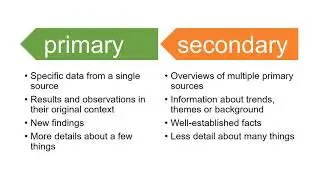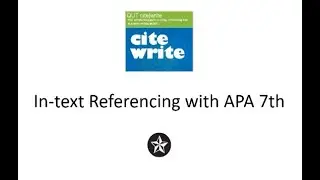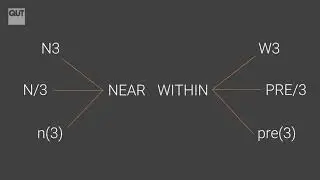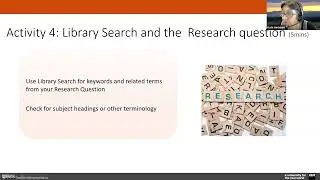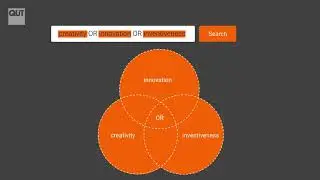Referencing: The Basics
This video is taken from QUT Library's 'Study Smart: information research and literacy skills' tutorial
Module 4.1.1 What is referencing? http://studysmart.library.qut.edu.au/...
Transcript:
New to university and not sure what referencing means? Referencing is important for many reasons. It's part of academic integrity, a way to support your ideas with evidence. It allows others to quickly and easily locate sources used in your work. It is part of academic integrity, a way to ensure honesty. Because of these reasons referencing is marked. This means understanding referencing can improve your results.
How does it work? To reference you need to keep the details of any source, a book, a journal article, a website etc. that you use in your assignment research. These details are things like the author and the title. You can then use the details in a set format in your assignment writing. Referencing consists of two parts, the in-text citation in your writing where you quote or paraphrase an author, and the reference list - this appears at the end of your writing and gives the full details of sources you've used. Every in-text citation will have a reference list entry, and vice versa.
When do you need to reference? Make sure your reference whenever you use a word-for-word quote, reword an author's ideas in your own words, or summarise the complete work of an author. You don't need to reference when stating a piece of common knowledge, like "there are seven days in a week" or "Paris is the capital of France". If you're not sure whether to reference you can ask your tutor, at the library or check cite|write for advice.







![OxygenOS 4.0.3 for OnePlus 3 - Antutu Benchmark [F2FS]](https://images.videosashka.com/watch/JPJQqdwjDR0)



